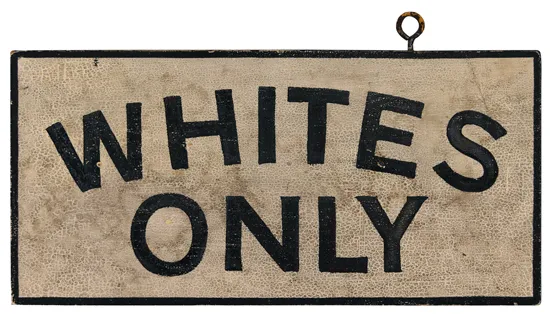I’d bet next month’s Social Security check that if you ask voters what the upcoming General Assembly ought to focus on, almost all of them would answer: aiding our tornado-ravaged communities and helping protect us all against the uber-contagious COVID omicron variant.
Those crises are real and deserve the legislature's undivided attention. But Republicans are manufacturing a phony crisis just to pass bills for scoring points in November.
Those bills, HB 14 and HB 18, seek to limit a public elementary or secondary teacher's freedom to teach about systemic racism. HR 18 would also include public colleges and universities. Under HB 14, the state could dock a school district $5,000 in funding for each day a teacher "persists" in violating the law.
"Also, under HB 14, teachers can lose their certification if they are found in violation of the law, according to KRS 161.120 (I)," said Jim Johnson, who is part of a group that's organizing a protest against HB 14 and HB 18 at the Capitol on Jan. 11 and 12.
The right-wing CRT freakout
HB 14 and HB 18 reflect the right-wing hysteria over Critical Race Theory. Though it is taught in law schools, not K-12 schools, Republicans stick the “CRT” label on almost any school program that meaningfully promotes diversity and inclusion.
The American Civil Liberties Union defines CRT as “an academic concept and practice that recognizes systemic racism is deeply ingrained in American society and examines how our systems promote inequality.”
Republicans define CRT as a diabolical and divisive attack on American society, meaning white society. They want white folks to think that CRT is a liberal Democratic plot to make white school kids hate their country.
To a lot of whites in red MAGA hats, CRT is like the Affordable Care Act, which Republicans still slam as "Obamacare." The Trump faithful might not know much about either, but they rant against the ACA largely because a Black guy championed it, and they blow fuses over CRT because it acknowledges that racism has been endemic in American law and society from the start.
"The problem of the twentieth century is the problem of the color line," W.E.B. Du Bois, scholar, civil rights activist and NAACP co-founder, declared in 1903. The rise of Trumpism is more evidence that the problem persists in 2022.
Some anti-CRT bills, like one the GOP-majority Tennessee legislature passed last May, specifically ban CRT from classrooms. HB 14 and HB 18 don't mention CRT. But the omission is deliberate, according to Cedric Merlin Powell, who is the Wyatt, Tarrant, and Combs professor of law in the University of Louisville’s Brandeis School of Law. (A press release from HB 14's sponsor is replete with references to CRT and says the measure is designed to keep CRT out of classrooms.)
The sponsors and cosponsors of both bills, all of them white, want Kentuckians “to think they’re not targeting people of color – that they just want ‘neutral history’ that doesn’t make people feel bad,” Powell said. "But everything they put in that legislation is really stereotypical.”
HB 14 and HB 18 "are a form of censorship — or viewpoint discrimination — by the state, which is presumptively unconstitutional," he added.
Even so, the GOP figures that in November, both bills will gladden a lot of voters in a state that's 87.5 percent white, is Bible Belt conservative and gave Trump, the Yankee George Wallace, more than 62 percent of its vote, both times he ran.
So move over, God, guns, and abortion – make room for CRT.
We’ve seen this before
HB 14 and HB 18 are rooted in the same strain of fear that led to the suppression of abolitionist literature in the antebellum South, and to a congressional gag rule that forbade even discussion of anti-slavery petitions from constituents.
Rep. John Quincy Adams, who’d been the sixth president, made the same free speech argument against the gag rule that many opponents of HB 14 and HB 18 are employing. He called repeated refusals to hear the petitions “outrages on the constitution of the country and on the freedom of the people.”
HB 14 and HB 18 are part of what the ACLU calls “a nationwide attempt to censor discussions of race in the classroom.” The measures will stall “progress in addressing systemic issues,” and “rob young people of an inclusive education and blatantly suppress speech about race."
That's the idea, of course.
CRT “assesses how structures, systems, and processes perpetuate inequality,” Powell explained. “We look at how the law is actually implicated in advancing that inequality and subordination and how inequality is reintroduced over and over to affect people of color.
"In trying to give a more complete history, it tries to critique any gaps that are in history. I think that's why people think that it is so dangerous to talk about race and racism in American society. [Opponents of CRT] ... want history to be very celebratory. [Supporters of CRT] don't hate America. They love America and are trying to fill in the gaps."
For any problem to be solved, it first has to be understood as a problem. Powell said racism is particularly hard to combat because it "is never acknowledged. This entire discussion we are having about Critical Race Theory is an example of that because no one is acknowledging that we are talking about race. This legislation doesn't mention Critical Race Theory. It mentions a lot of hurt feelings, stigmatizations – all of the things connected with race without mentioning race."
Powell added that historically, racism has been a social and legal construct. In other words, the majority white society "invents race whenever it is convenient to advance its own interests. The United States has a history of constructing race in order to exclude and include."
He cited the so-called "one drop" rule. One of the underpinnings of the Southern Jim Crow system of racial discrimination, segregation, and African American voter disenfranchisement, the rule held anybody with even a single Black forebear was Black. The rule was "designed to subordinate Blacks and keep them in a caste-based position of second class citizenship," Powell said.
Similarly, whites played the race card with other minorities. "We welcomed Chinese immigrants when we needed them to build the railroads, then we felt threatened by them; same with Mexican immigrants," he said.
In addition, Powell pointed to racially-charged words, like Trump calling COVID-19 "the China flu" and condemning supporters of the Black Lives Matter movement as "insurrectionists" while lauding as "patriots" the pro-Trump mob that stormed the U.S. Capitol on Jan. 6, 2021. "That's racializing particular groups based upon society's interests in subordinating certain classes of people."
Powell said state laws that suppress minority voting are another example of how the law perpetuates subordination of minorities. Proponents of such laws claim they are "trying to stamp out 'voter fraud,' which might sound neutral, while using 'voter fraud' to weaken the political voice of people of color and the poor."
He also explained intersectionality, or how discrimination can impact both race and gender. "So, a Black woman, for example, experiences discrimination because of her race and gender; this is because her identity is not one-dimensional."
Finally, he said conservative whites are so vexed over CRT because it exposes the fact that we're not in a post-racial society. Meanwhile, Trump and his supporters see CRT "as an opportunity to take a term that they really don't know the meaning of and load it up with all the stereotypes they've been using for years," Powell said.
Opponents of HB 14 and HB 18 know the Republican super-majority House and Senate will likely pass both bills and easily override a veto from Democratic Gov. Andy Beshear, who said, “...Once you start legislating what can and can’t be taught in schools, especially in the framework of politics, it gets really dangerous.”
Said Johnson: "It's going to be a monumental task to stop these bills, but well worth the effort."
All History Matters and Defenders of Accurate History also issued a joint statement which warns that HB 14 and HB 18 would "in effect, mandate the teaching of a false version of history in which the struggles for freedom and equality by African Americans, Native Americans, women, religious minorities and others are erased. These bills constitute what have come to be called 'memory laws' -- laws that enshrine state-approved interpretations of historical events--similar to those enacted by authoritarian regimes across the globe.”
HB 14 and HB 18 harken to Nineteen Eighty-Four, George Orwell's 1949 dystopian novel about a ruthless dictatorship run by the all-powerful Party, whose motto is "Who controls the past controls the future: who controls the present controls the past." Kentucky Republicans are using these bills to try to control the past, present, and future.
--30--








